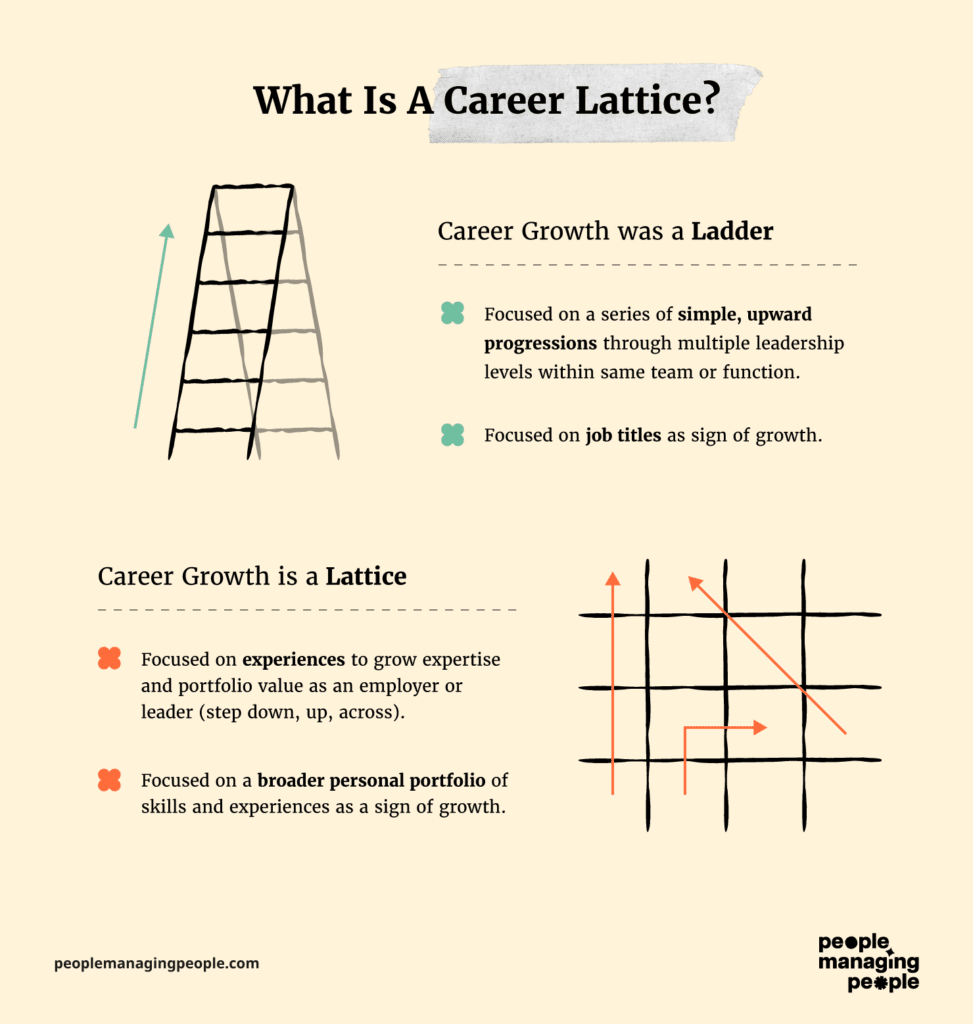There are many potential HR career paths, but what if you want to transition out of HR altogether?
How can you take the experience, skills, and competencies gained from working in HR and apply them in another profession?
HR Skills Analysis
First, let’s take a look at some of the key skills and competencies of modern HR professionals:
- Communication
- Coaching
- Budgeting
- Leadership and management
- Writing policies
- Creating and documenting processes
- Strategy and research
- Competing priorities
- Project management
- Data analytics and reporting
- Business acumen
- Conflict management/negotiation
- Organizational design
- Change management
- Training
- Learning and development
- Compensation management
- Recruiting
- HRIS
- Administration
- Health and Safety
- ESG
- Employee relations
- Emotional intelligence
- Networking
- Creative problem solving
- Root cause analysis
You may possess these skills and competencies to varying degrees. If you're not so strong in a particular area but you enjoy it, you can always use it as a starting point to build on with some personal development.
In any case, your skills are not useless if you're looking to transition. Go through an HR Reddit thread on the topic and you'll find people who have leveraged their skills to transition into all kinds of HR adjacent career paths.
Potential Second Careers For HR Professionals
Project manager
Project managers come from all walks of life. While project management certifications exist, the skills and competencies required of project managers closely correspond with someone working in HR. If you’ve ever implemented a new HRIS, for example, this will have required project management—maybe you’ve even dipped your toes into agile HR.
Key transferable skills: Communication, stakeholder management, negotiation, leadership, documentation, managing budgets and timelines.
Possible training required: Project management methodologies, risk management
Interested piqued? Check out this article on How To Become A Project Manager.
Product manager
Product managers, like project managers, can hail from a multitude of backgrounds, but many switch over from project management, software development, or business analysis. As an HR professional, you likely have experience with many forms of HR software.
You might also regularly undertake user research (think employee surveys and exit interviews) and take a people ops as a product approach to developing and iterating new people initiatives using metrics to tell a story.
As such, a sweet spot here could be a product manager for an HR tech company.
Key transferable skills: Communication, stakeholder management, negotiation, documentation, strategy and research, managing budgets and timelines.
Possible training required: Agile development frameworks, design thinking, technical terminology and concepts, basic corporate finance.
Interest piqued? Check out this article How To Become A Product Manager.
Operations manager
Over the years HR’s role has expanded to cover people operations, a highly strategic function that leverages HR skills to drive business success through creating exemplary employee experiences.
Often working closely with other C-suite execs, from here it’s not such a giant leap into a wider operations role such as COO.
Key transferable skills: Leadership and management, communications, strategy and research, budgeting, business acumen, org design
Possible training required: Finance and revenue, analytics
Interest piqued? Check out Jessica Zwaan's excellent article A New Path To COO
Career coach
Advising and coaching your colleagues on the various issues they face day-to-day is a regular occurrence for some HR pros. This includes everyone from new employees to first-level line managers, to executive leaders.
You’ve also no doubt read a million CVs and conducted thousands of interviews, so you know what recruiters are looking for, and you’re heavily involved in wider learning and development strategies including succession planning.
If coaching is a regular part of your role, and you enjoy it, then making the transition to career coach is a potential option.
Key transferable skills: Coaching, empathy, learning and development, networking
Possible training required: Formal coaching frameworks, business development, self-promotion
Sales or account management
Sales really is one of those jobs that attracts people from all walks of life—notably ones who like making heaps of cash. Fundamental to sales are communication, psychology, relationship building, integrity, consistency, and product knowledge.
Being able to talk to people and find out their wants and needs isn’t too far removed from coaching or employee relations. Like with product management, a sweet spot here could be sales or account management for an HR software company.
Key transferable skills: Communication, active listening, coaching, product knowledge
Possible training required: Sales techniques
HR consultant
OK so I said non-HR jobs in the intro but I’m including this because as a consultant you get to dip in and out of different projects at a strategic level.
As a freelance HR consultant, you’ll use your years of experience to advise organizations on their talent management strategies and help build systems and processes.
If you’re particularly strong in one area, for example, recruitment, L&D, DEI, or comp and bens, then you might want to specialize.
Key transferable skills: Business acumen, data analysis, strategy and research, or a specialism
Possible training required: Business development, self–promotion
Health and safety
If part of your role encompasses workplace health and safety then it’s possible, with some extra study, to transition into a health and safety role outside of HR, for example in the construction industry.
Key transferable skills: Health and safety
Possible training required: Professional qualifications
Business analyst
Strategic HR means getting exposure to many different business areas and being comfortable working with data. If you enjoy the data, efficiency, and process improvement side of things a business analyst role might be for you. You can rely on your communication and networking skills to help you excel.
Key transferable skills: Business acumen, strategy and research, data and reporting
Possible training required: Business analysis methodologies, advanced data analysis and visualistation tools
ESG consultant
In many organizations, HR is heavily involved in the Governance aspect of ESG and potentially the social and environmental aspects as well. With a bit of personal development, then it likely won’t be too difficult to transition to ESG full-time, perhaps as a consultant.
Key transferable skills: ESG, reporting
Possible training required: Environmental and social governance, business development, self-promotion
Instructional or curriculum design
Those of you in the L&D space will be used to designing training strategies built around specific needs and measuring their effectiveness. There are plenty of training companies out there that need instructional designers and you could also consider curriculum design for higher education.
Key transferable skills: Learning and development
Possible training required: Instructional or curriculum design certification
Teacher or lecturer
There are plenty of HR certifications and courses out there that need instructors and most parts of the world are notoriously short on teachers. Your ability to communicate clearly and manage conflict would definitely come in handy there! This is a potential path that could dovetail nicely with career coaching too.
Key transferable skills: HR knowledge, coaching, communication skills
Possible training required: Teaching qualification
Writer
Here at People Managing People, we work with many HR professionals whom we pay to write articles such as this one (you can apply here). There are also a lot of HR software vendors out there that contract HR professionals to write articles as part of their content marketing efforts.
Key transferable skills: HR knowledge, communication skills
Possible training required: Content writing course
Therapist/counselor
Whether it’s strictly in your job description or not, often HR folks can take on the role of therapist or counselor to help colleagues through tough periods.
Perhaps you’re also involved in wider initiatives such as helping underrepresented groups gain employment. Odds are you find helping others fulfilling and you’re used to helping guide people through problems, which lends itself to counselor or therapist roles.
Key transferable skills: Coaching, employee relations
Possible training required: Counseling or therapist qualification
Career Change Advice
Inspired? Here are some steps and general advice for planning and executing a career change:
Self-assessment
Begin by evaluating your skills, interests, values, and strengths. Reflect on what you enjoy doing and what motivates you. Consider using self-assessment tools or seeking guidance from career advisors as well as trusted friends, family, and even colleagues.
Just like you probably had to do an HR certification for beginners when you got into the field, you might have to look at some coursework that gives you a credential which proves you got a grip on the basics. Don't shy away from something just because you have to start from scratch.
Research and networking
Explore potential career options that align with your skills, interests, and values. Research industries, job roles, and organizations that appeal to you and gather information about job responsibilities required qualifications, growth prospects, and salary expectations.
One tip is to start looking for firms or companies that are doing work that you find interesting and start having conversations with people there and their hiring managers. You can also attend industry events and join professional associations. You’ll start building a network too.
Skills gap analysis
Now you’ve got a good idea of what you’re interested in and what’s required, use this info to identify any gaps between your current skills vs the requirements of your target career. Off the back of the results, you’ll know if you need to enroll in any courses, workshops, or training programs to develop the necessary skills.
Gain experience
Look for opportunities to gain relevant experience in your target field, such as internships, volunteer work, freelance projects, or part-time roles. Practical experience can enhance your credibility and demonstrate your commitment to your new career path.
Do some financial planning
Assess the financial implications of your career change, including potential changes in income, benefits, and expenses and create a budget and savings plan to support yourself during the transition period.
Make a transition plan
Develop a timeline and action plan for executing your career change. Set specific goals, milestones, and deadlines to keep yourself accountable. Break down larger tasks into smaller, manageable steps to make progress steadily.
Seek support
To keep morale and energy up, it’s important to surround yourself with a supportive network of friends, family, mentors, and career advisors who can offer encouragement, guidance, and feedback throughout your career change journey.
Careers Are Rarely Linear These Days
The days of the traditional career ladder being the only option are over. It’s more common for careers to resemble something like a lattice with many forward, lateral, and backward steps.

Perhaps there are opportunities within your current org to gain exposure to different areas and pick up new knowledge and skills.
Looking to the future, there’s the potential for AI to automate away a lot of the hard skills, so it’s the soft skills you pick up as an HR leader that can help set you up for so much career flexibility in the next 10 years.
If the job is feeling a bit stale, maybe taking an HR course can help you learn something new and segue into something new within the field.




